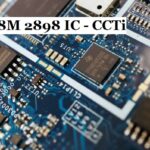The rapid modernization of cities is posing serious challenges for people to cope with the ongoing development and synchronisation with the latest technology. The concept of smart cities has proven to be a beacon of light to address these issues. These cities powered by strong internet connections such as the Cox Internet plans use technology to develop sustainable, effective, and pleasant city environments. The seamless blend of technology in all aspects of urban development is leading smart cities toward a better and more connected future.
Internet of Things (IoT)
The principle of connectivity is the foundation of smart cities. This integration is established through the IoT which enables devices to collect, exchange, and analyse data. IoT-driven solutions are revolutionising city operations, from smart traffic signals that modify their timing depending on live traffic flow to trash management systems that optimise collection routes. One such instance is Singapore’s smart traffic management system, which uses sensors to track the state of the roads and alter traffic lights to eliminate bottlenecks and shorten travel times.
Efficient Energy Consumption
Smart cities also place a lot of emphasis on energy efficiency. Conventional urban infrastructures are energy-intensive and often cause wastage. Smart cities use technology to reduce energy consumption and rely more on renewable energy sources. Masdar in the United Arab Emirates is one prime example, that uses solar power and innovative construction techniques to minimise the environmental impact. Cities can reduce their carbon footprint and ensure a steady and uninterrupted power supply by implementing smart grids and sophisticated energy management systems.
Surveillance
Smart cities are implementing cutting-edge monitoring and surveillance systems to improve public safety. These systems leverage information from social media, sensors, and CCTV cameras to immediately identify and address emergencies. For example, the city of Chicago has created a “Strategic Subjects List” that employs predictive analytics to identify people who are likely to be involved in criminal activities, enabling law enforcement to take action and avert possible crises. Although these programs raise privacy and surveillance concerns, supporters contend that the advantages in terms of reducing crime and enhancing public safety exceed the negatives.
Urban Mobility
Urban transportation is greatly influenced by technological development in the cities. Smart cities are effectively addressing common issues of metropolitan cities like traffic jams and poor public transport. Electric scooters, self-driven vehicles, and ride-sharing services are altering the way people travel.
For instance, the Helsinki transit app offers a variety of transportation modes, including buses and bikes, making it simple for users to plan their trips. The use of new sophisticated self-driving can transform urban transportation resulting in less traffic jams, reduced pollution, and greater accessibility.
Quality of Life
An important factor in developing smart cities is the quality of life. The use of wearable devices and telemedicine in healthcare allows for remote patient monitoring and early intervention. This is particularly helpful in highly populated places where finding healthcare facilities can be difficult. Smart waste management systems also support hygienic practices and cleanliness. Waste containers with sensors notify authorities when they are full, streamlining collection routes and reducing problems caused by litter.
Community Engagement
The key to any successful urban development project is community engagement. Smart cities make use of technology to increase civic involvement and collect accurate data from the residents. Citizens can express their ideas on topics ranging from public services to urban planning using digital platforms and smartphone apps. For instance, the suggestions and input of the locals helped to develop Barcelona’s “Superblocks” project. Cities can adapt their development strategies to match the needs of their population by including residents in the decision-making process.
Challenges Faced by Tech-driven Smart Cities
The Digital Divide
Smart cities bring with them many challenges. The growing digital divide raises questions regarding fair access to technology. All residents may not have equal access to smartphones, fast internet, or digital literacy, potentially limiting underprivileged communities from the benefits of smart city programs. For everyone to benefit from technology-driven urban growth, it is important to address these inequalities.
Data Confidentiality
The proliferation of data in smart cities poses serious threats to data privacy and cybersecurity. The collection and analysis of huge amounts of sensitive data makes it crucial to protect this information from theft and exploitation. Building and maintaining public confidence in smart city technology requires effective cybersecurity safeguards and open data governance frameworks.
Conclusion
Smart cities have begun a revolution to transform urban living. These cities are solving enduring issues while simultaneously embracing innovation by incorporating technology into various aspects of urban development. The energy-efficient infrastructure and data-driven administration of smart cities promise a more sustainable, effective, and livable city environment. To effectively accomplish this goal, community planners, policymakers, and technologists must work together to address issues with equality, privacy, and security.










Leave a Reply